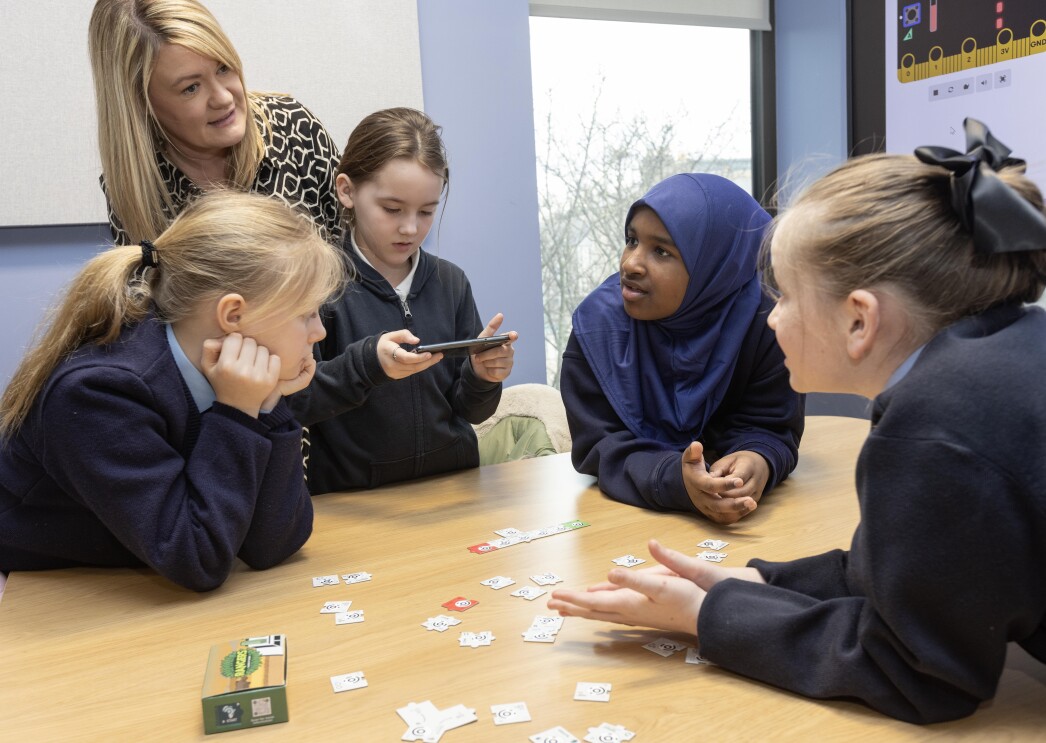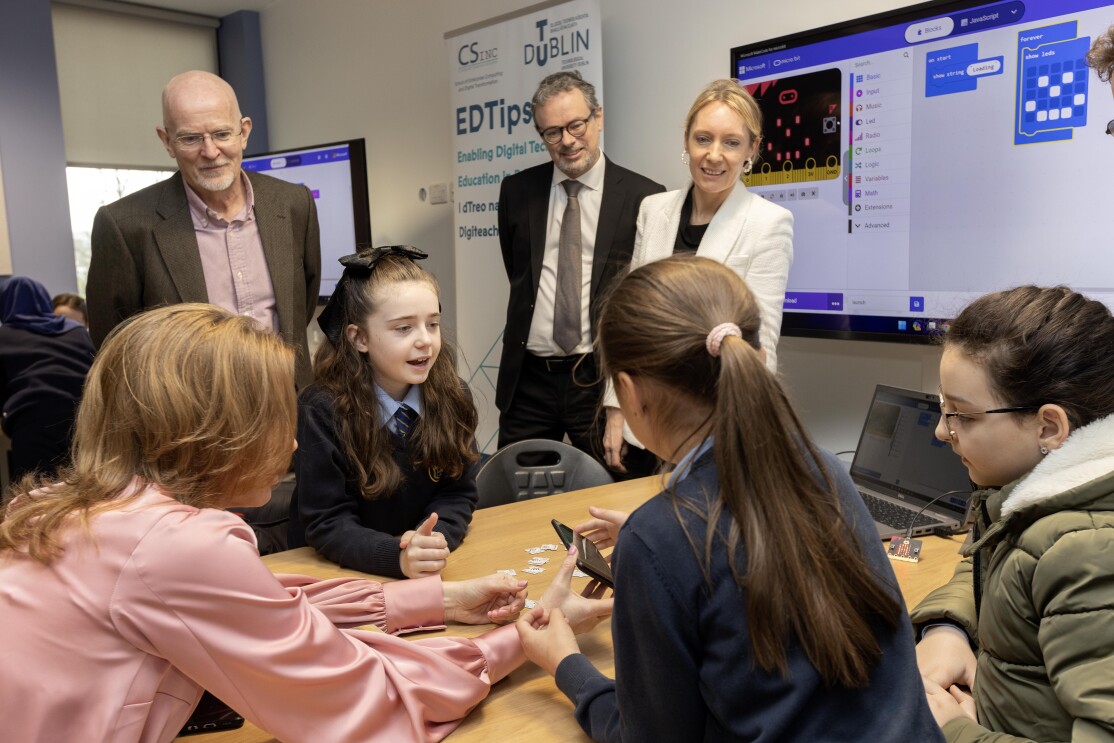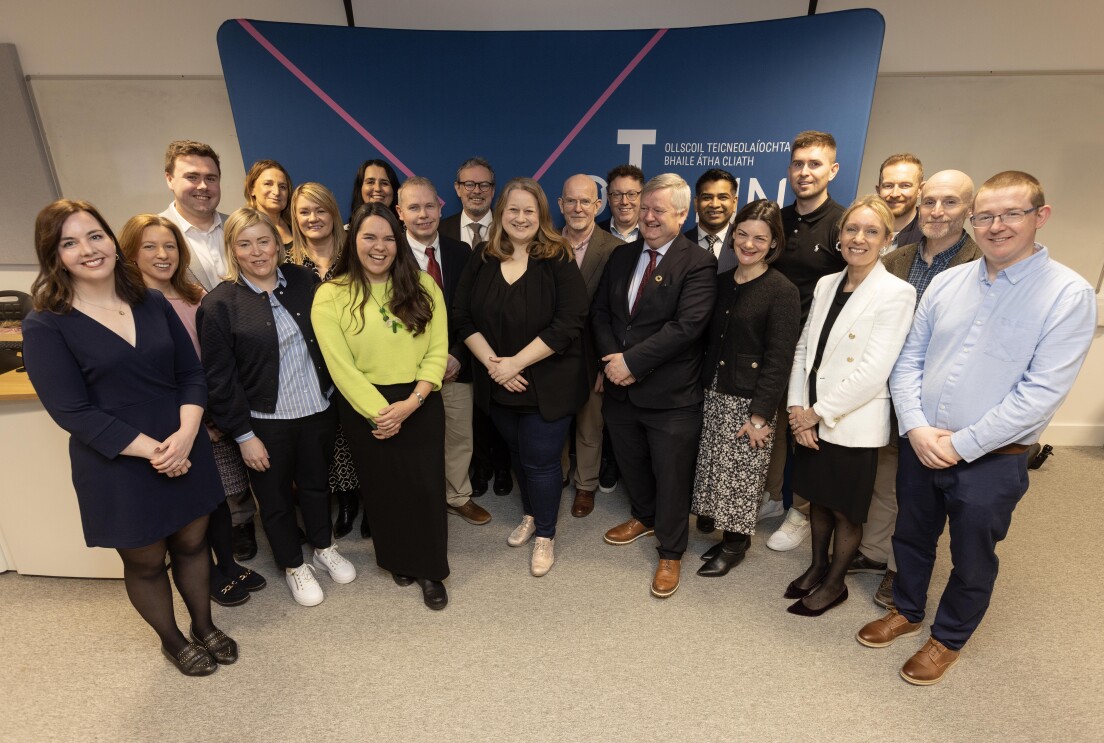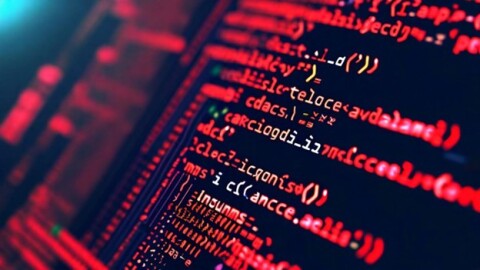Amazon Web Services (AWS) is donating a free digital technology kit to every primary school across Ireland, as part of the Enabling Digital Technology in Primary School (EDTips) programme, which will offer free digital technology teaching resources and equipment to primary schools to prepare for the introduction of the Primary Curriculum Framework during the 2025/2026 academic year.
The programme is led by CSinc (Computer Science Inclusive) in the School of Enterprise Computing and Digital Transformation in Technological University Dublin (TU Dublin), and has received funding from Science Foundation Ireland’s Discover Programme, AWS, and Workday. It will run over two years and will train primary school teachers in a suite of age-appropriate and interactive educational tools, catering to the abilities of all pupils and encouraging them to become confident, creative, and critical users of digital technology.

Academics at TU Dublin with research expertise in computer science education will develop comprehensive teaching materials and activities modelled on the Primary Curriculum Framework. Meanwhile AWS – through its community engagement programme, AWS InCommunities – will supply a free offline digital technology kit to every school, enabling them to fully engage pupils in the curriculum, irrespective of technical infrastructure, geographical location or socioeconomics.
Each digital technology kit will include a BBC micro:bit, an award-winning programmable device that allows students to get hands-on with coding and digital making – a pocket-sized computer developed in the UK as a tool for teaching coding on a computer.
“The micro:bit is an amazing way of teaching coding,” said Dr. Keith Quille, a senior lecturer at TU Dublin, and a member of CSinc, an organisation based out of TU Dublin’s Tallaght Campus, which exists to promote inclusivity in computer science.
“But I also believe it’s the right way to learn – it’s not just a fun game, it also supports the core concepts that students need to grasp.”

The micro:bit champions physical computing, where students can see a physical outcome from their learning, such as creating code that turns a light switch on in front of them. This gives them real-world outcomes for their coding and helps them engage with technology.
Neil Morris, Country Lead at AWS in Ireland, said: “These new technology kits will allow teachers in every primary school in Ireland to learn and be curious with coding. At AWS, we are determined to play our part in fostering the next generation of Irish technology leaders, and we will continue to look for opportunities to encourage young technology talent and support them in their journey through school and into further education.”
How AWS is empowering the next generation of Ireland’s digital educators
Dr. Keith Nolan is also a lecturer at TU Dublin and a member of CSinc. He explains how EDTips will not just support teachers as they adapt to teaching the new curriculum; it also aims to engage young people in coding.
“The hope with EDTips is that it helps get teachers up to speed and to get them over the first step learning digital technology, so they feel confident in the classroom,” he said. “The EDTips project will recruit a panel of teacher content creators who will take work packets from the draft curriculum and design resources around the very specific learning outcomes contained within it. From there, what we'll do is we'll use our existing online platform CSinc - which is currently set up to get educational content to second level students - to distribute this content to primary school teachers.”
He adds: “We're going to develop a bespoke system where teachers are able to sign up and get direct access free of charge - with no barrier. That’s a crucially important part of ensuring this project functions regardless of where you are in the country, without any need for technical infrastructure on our side because AWS is facilitating that through the cloud.”
Building an education programme with inclusivity in mind

This project aims to engage teachers and pupils in digital technology. The project team were acutely aware that if the resources developed were not in both a plugged and unplugged format, schools lacking in digital infrastructure may not be able to fully utilise the resources.
Dr. Keith Quille explains: “There are two sides to how the educational aspect of this works: there’s the ‘plugged/online’ element and ‘unplugged/offline’ access that the BBC micro:bit and Rangers kit (powered By Tangibl) offer, that helps to solve the problems that exist around access.
“If you have a school in the country that has no digital infrastructure, and you want to teach digital technology in your classroom, that just doesn't work. The BBC micro:bit and Rangers kit allows you to do this with minimal technology overhead. The Rangers kits can very easily be replicated offline. Work sheets can be printed off and distributed to the entire school.
“What I like about this AWS project is that they didn’t tell us what to include. They trust us, as experts, to develop supports for teachers to deliver digital technology. That kind of support is simply amazing because it gives us the freedom to help teachers to then go on to help students learn.”
AWS is committed to making a positive difference around the world
To benefit our communities in regions where we build and operate our global infrastructure, we established a programme called AWS InCommunities, which launches long-term, innovative programmes that will have a lasting impact in our regions around the world where we work, live, and raise our families. We’re obsessed with being good neighbours, so we start by working closely with the community to best represent their interests and needs inside AWS.
For more information on the project, click here.
To learn more about how AWS is helping engage Irish students with STEM, click here.











